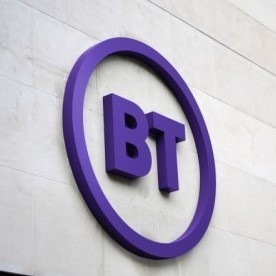The newly confident UK phone incumbent now reckons it can fund all fiber rollout without an investment partner, but a cost recovery has yet to show up in results.

Just a few months ago, BT, the UK's wheezing national incumbent, was on the lookout for a fiber investment partner to propel it over the last hump of 5 million homes. It is a measure of newfound management ebullience that those plans have been ditched. Build costs are falling, fiber take-up is ahead of expectations and BT, confident free cash flow will fatten in the next few years, reckons it can now run solo.
Crossing the finish line of 25 million premises fully served by fiber may gobble up around £12 billion (US$16.4 billion) in capital expenditure at a time when infrastructure rivals are flooding the market. Recent BT griping about net neutrality proves there is little optimism customers will spend more for extra capacity or higher-speed services. And the latest financial results are very spaghetti western – a mix of the good, the bad and the ugly. Confidence seems entirely predicated on what BT hopes will happen after recent efforts to slash costs.
The savings plan, says the operator, has cut expenses by roughly £1 billion ($1.4 billion) 18 months ahead of target. BT also reckons it can find another £1 billion in savings by 2024, a year earlier than planned. This leads it to estimate that capital expenditure will drop by £1 billion and operating costs by £500 million ($681 million) as it approaches the fiber finish line. On that basis alone, it is guiding for an astonishing increase in free cash flow (FCF) of £1.5 billion ($2 billion) by the end of the decade compared with 2022. That would be double the FCF it generated last year.
Figure 1:  BT CEO Philip Jansen is restoring dividends after cost improvements at the UK telco.
BT CEO Philip Jansen is restoring dividends after cost improvements at the UK telco.
But there is very little sign of much improvement so far. Despite investment in fiber and 5G, sales fell 3% for the first six months, to around £10.3 billion ($14 billion), and pre-tax profit dropped 5%, to about £1 billion. Capital expenditure is up a dramatic 30%, to nearly £2.6 billion ($3.5 billion), as BT plows funds into network rollout.
Operating costs, meanwhile, have fallen just 3%, to roughly £8.9 billion ($12.1 billion). Savings, says the operator, were offset by higher repair costs at Openreach, the networks division, as well as spending on TV rights for sport. At more than £18.2 billion ($24.8 billion), BT's net debt is about 2.5 times what it made in earnings last year.
Staffing-wise, BT still looks bloated alongside sleeker service providers. It has cut exactly 6,126 jobs (net) since the end of the 2020 fiscal year, giving it a workforce of 99,218 employees in September. But Vodafone, with operations across the UK, Europe and Africa, employed just 96,506 people at the end of March. Last year, BT's revenues-per-employee figure of about $300,000 was one of the lowest among operators in Western Europe.
Greener and more efficient
Savings are not just about jobs, though. BT is also selling property and switching off old technology platforms and IT systems. Before long, it should be able to retire 3G, a disappointing mobile technology. Copper-based broadband services will follow when the fiber rollout is complete. The energy savings alone could be substantial.
"I consume about 1% of the entire UK power and half of that is on legacy networks," said Howard Watson, BT's chief technology officer, in conversation with Light Reading at the recent Broadband World Forum in Amsterdam. "There is a big prize there, especially now with what we are seeing with fuel prices. If I can take that 0.5% of the UK's power and switch it off that has great economic benefits and great green-credential benefits for us as well."
The fiber rollout has a long way to go, however. That is not for lack of application. Openreach's full-fiber rollout now covers about 6 million premises, up from just 4.6 million a year ago. But one danger is that other fiber builders arrive at some doorsteps first. Another is that customers show zero interest in a fiber upgrade.
Want to know more about 5G? Check out our dedicated 5G content channel here on Light Reading.
Encouragingly, ten broadband retailers, including the big names of Sky and TalkTalk, have now signed up to Openreach's new full-fiber pricing plans. BT also predicts fiber buildout costs per home passed will drop to between £250 and £350, from between £300 and £400 previously. Yet fewer than 1.3 million of Openreach's 21.6 million connections were classed as full fiber at the end of September.
BT's 5G deployment also looks relatively slow-going. More than two years after launching 5G services, it had covered only 40% of the population by the end of September. At roughly the same stage of 4G rollout, more than 70% of UK homes were within reach of a service. The pandemic, a government-ordered swap-out of Huawei technology and the need for heavier radio equipment – much harder to install – could all explain why 5G is so far behind. BT has stopped reporting mobile customer numbers but did reveal that more than 5.2 million subscribers are "5G-ready" – meaning they are on 5G tariffs and SIM cards but do not have devices that support 5G connectivity.
There was enough of the good to cheer investors, including a reinstatement of the dividend, with an interim payment of 2.31 pence per share announced. BT's share price was trading up about 6% this morning on the London Stock Exchange, although it has sunk 60% in the last five years. It will need far less of the bad and the ugly if it is to see further improvement.
Related posts:
— Iain Morris, International Editor, Light Reading
Read more about:
EuropeAbout the Author(s)
You May Also Like










